Im currently trying list files/directories inside of adls2 using a continuation token (currently our folder has over 5000 files). I am able to send my first request, however receive a 403 error (presumably meaning incorrect formatting) when trying to connect with the continuation token in the response, and unsure what formatting problems could be causing this error.
I have currently tried removing the = sign at the end of the key for the uri, seeing as that was the problem for someone else. I had also tried creating a header for the continuation inside of my request with no luck.
adls_request is the main function. This gets run twice, once for the initial request, second for the continuation. Currently I have the continuation set up inside the uri and signature.
def gen_signature(request_time, api_version, storage_account_name, file_system_name, storage_account_key, signature_params):
string_params = {
'verb': 'GET',
'Content-Encoding': '',
'Content-Language': '',
'Content-Length': '',
'Content-MD5': '',
'Content-Type': '',
'Date': '',
'If-Modified-Since': '',
'If-Match': '',
'If-None-Match': '',
'If-Unmodified-Since': '',
'Range': '',
'CanonicalizedHeaders': 'x-ms-date:' + request_time + '\nx-ms-version:' + api_version,
'CanonicalizedResource': '/' + storage_account_name+'/'+file_system_name+signature_params
}
string_to_sign = (string_params['verb'] + '\n'
+ string_params['Content-Encoding'] + '\n'
+ string_params['Content-Language'] + '\n'
+ string_params['Content-Length'] + '\n'
+ string_params['Content-MD5'] + '\n'
+ string_params['Content-Type'] + '\n'
+ string_params['Date'] + '\n'
+ string_params['If-Modified-Since'] + '\n'
+ string_params['If-Match'] + '\n'
+ string_params['If-None-Match'] + '\n'
+ string_params['If-Unmodified-Since'] + '\n'
+ string_params['Range'] + '\n'
+ string_params['CanonicalizedHeaders']+'\n'
+ string_params['CanonicalizedResource'])
signed_string = base64.b64encode(hmac.new(base64.b64decode(storage_account_key), msg=string_to_sign.encode('utf-8'), digestmod=hashlib.sha256).digest()).decode()
return signed_string
def create_headers(request_time, api_version, storage_account_name, signed_string):
headers = {
'x-ms-date' : request_time,
'x-ms-version' : api_version,
'Authorization' : ('SharedKey ' + storage_account_name + ':' + signed_string)
}
return headers
def create_url(storage_account_name, file_system_name, url_params):
url = ('https://' + storage_account_name + '.dfs.core.windows.net/'+file_system_name+url_params)
return url
def set_optional_params(list_dir, file_dir, token_continuation):
if token_continuation != '':
token_continuation_sig = '\ncontinuation:'+token_continuation
token_continuation_url = '&continuation='+token_continuation[:-1]
else:
token_continuation_sig = ''
token_continuation_url = ''
print token_continuation_sig
print token_continuation_url
if list_dir:
print type(token_continuation)
signature_params = '\ndirectory:'+file_dir+'\nrecursive:true'+token_continuation_sig+'\nresource:filesystem'
url_params = '?directory='+file_dir+'&recursive=true'+token_continuation_url+'&resource=filesystem'
return signature_params, url_params
else:
signature_params = ''
url_params = ''
return signature_params, url_params
def get_request_time():
return datetime.datetime.utcnow().strftime('%a, %d %b %Y %H:%M:%S GMT')
def adls_request(list_dir,
file_system_name,
file_dir = '',
storage_account_name = 'account_name',
storage_account_key = '123456789==',
api_version = '2018-11-09',
token_continuation = ''):
signature_params, url_params = set_optional_params(list_dir, file_dir, token_continuation)
request_time = get_request_time()
signature = gen_signature(request_time, api_version, storage_account_name, file_system_name, storage_account_key, signature_params)
headers = create_headers(request_time, api_version, storage_account_name, signature)
url = create_url(storage_account_name, file_system_name, url_params)
r = requests.get(url, headers = headers)
return r
I expect the response output to come up 200, containing the rest of the files inside the directory, but still am currently receiving 403 error.
